
MINSK, 5 November (BelTA) - The draft law on Amending Laws Regarding Policy-Making, submitted to the House of Representatives by the Belarusian president, has passed its first reading on 5 November, BelTA has learned.
The bill was presented by Director of the National Center of Legislation and Legal Research Andrei Matselsky.
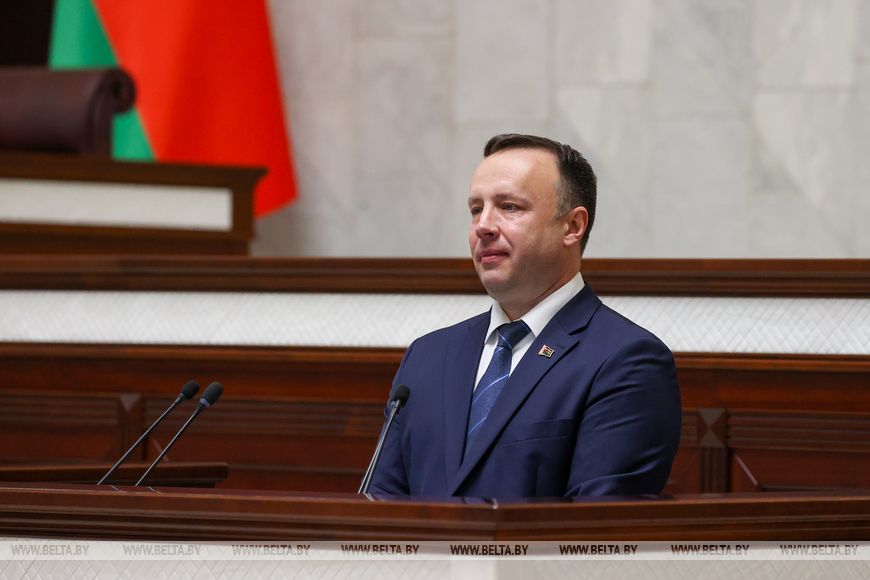
According to him, the adoption of the law will implement the president's instructions on policy-making activities. It aims to improve the quality of draft regulatory legal acts, ensure the efficiency of the policy-making process, and maintain a compact body of laws. This will be achieved by regularly updating secondary legislation to prevent its unjustified expansion and by systematizing regulatory legal acts related to policy-making.
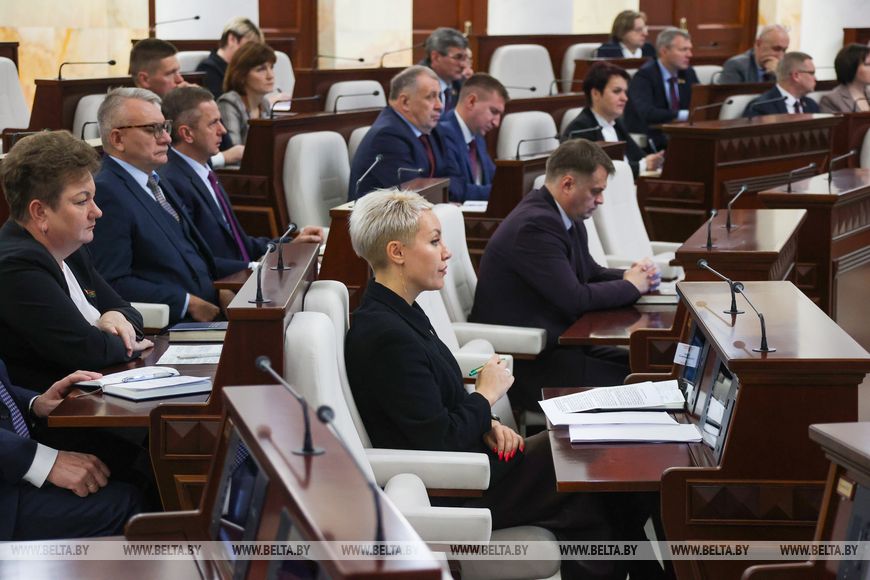
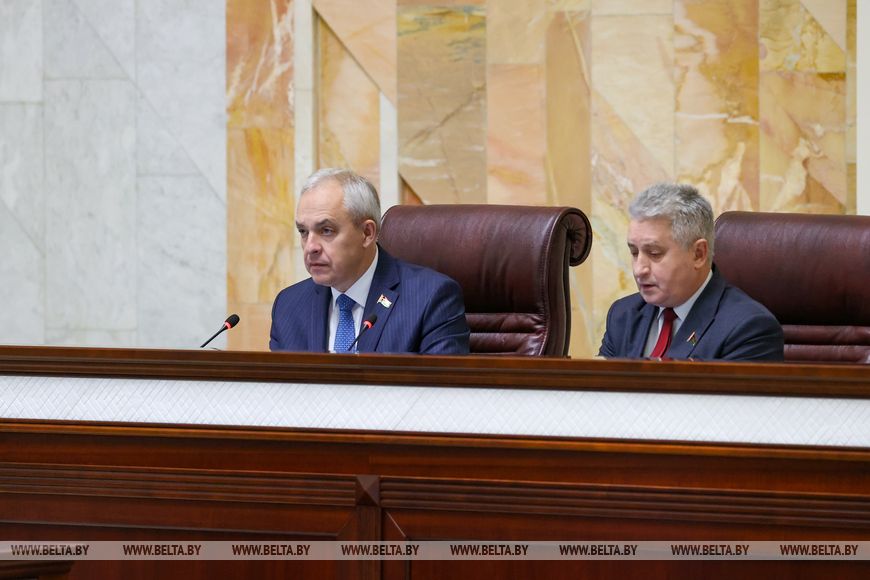
The bill was developed to systematize legislation following a review of regulatory legal acts, which was carried out in accordance with the instruction of the head of state, Marina Lenchevskaya, Chairperson of the House of Representatives' Standing Commission on Legislation, told the media.
“This is a consequence of the large-scale review that was conducted in 2024 on the instruction of the head of state. There were compelling reasons for this. Our national legislation contained more than 170,000 regulatory legal acts. This is a significant volume. Many of them were difficult to read, duplicated each other,” Marina Lenchevskaya explained. “This draft law aims to ensure the efficiency, systematic nature, stability, and accessibility of legislation, and most importantly - its quality. The key message of the bill is that laws must be simple and understandable not only for legal practitioners but also for ordinary citizens.”
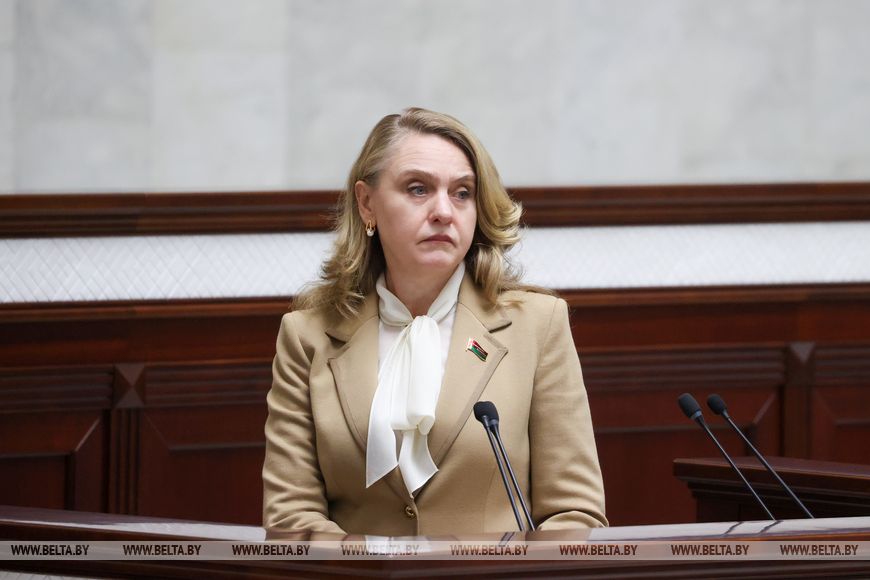
The deputy outlined the main innovations. For instance, it eliminates frequent amendments to regulatory legal acts, which will ensure the stability of the legislation. The significance of the “package principle” is being strengthened. “It is important that draft laws are submitted to parliament together with the drafts of the accompanying regulatory acts. I am referring here to the secondary legislation that will be adopted to implement the main provisions of the law. Objectively, the adoption of such secondary regulatory acts is currently being delayed,” she explained.
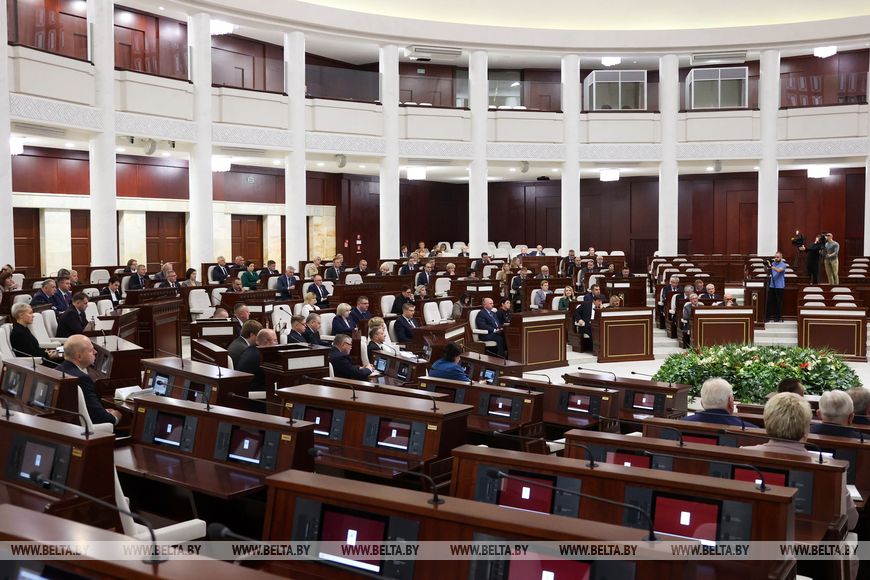
The unjustified use of referential and blanket norms is being eliminated. This innovation is aimed at making legislation simpler and more accessible.
Furthermore, the draft law provides for a systematic inventory of regulatory legal acts. It is proposed that laws will be inventoried once every five years, secondary legislation (including government decrees) once every three years, and acts from ministries and departments annually. This innovation is aimed at preventing the expansion of the legislative corpus.
Another key change is the transfer of a specific function from the National Center of Legislation and Legal Research to the House of Representatives of the National Assembly of the Republic of Belarus, namely, the control over the implementation of the final provisions of laws. “It was the House of Representatives that initiated this particular amendment,” Marina Lenchevskaya said. “We understand this is a significant additional responsibility, but it is very important work, and we are prepared for it. Crucially, strengthening parliamentary control in this area will enable a more effective implementation of our primary lawmaking function and ensure more successful feedback between the legislative and executive branches.”
In general, all the novelties in the draft law are very positive; they align with the concept of the state's legal policy and will undoubtedly serve to enhance the quality of legislation, the chairperson of the Standing Commission said.













